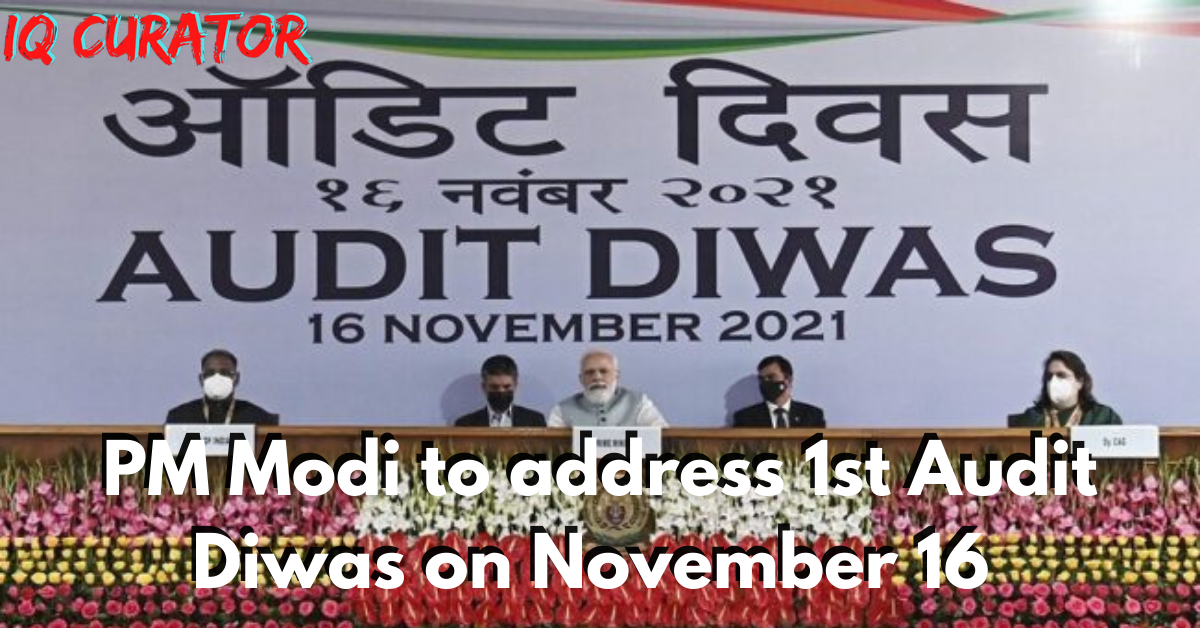The Prime Minister recently unveiled a statue of Sardar Vallabhbhai Patel at the office of the Comptroller and Auditor General of India (CAG) on the occasion of First Audit Day (November 16, 2021).
It is celebrated to mark the historic founding of the CAG organization. It aims to highlight the CAG's rich contribution to promoting transparency and good governance.
Girish Chandra Murmu took over as the Comptroller and Auditor General of India on August 8, 2020.
Constitutional Corporation: Article 148 provides for an independent office of the CAG. It is the supreme audit corporation in India.
Other provisions relating to CAG include the following: Section 149 (Duties and Powers), Section 150 (Statement of Union and State Accounts), Section 151 (Report of CAG), Section 279 (Calculation of 'Net Income', etc.) and Third Schedule (Oath or Pledge) and Sixth Schedule (Administration of Tribal Areas in the States of Assam, Meghalaya, Tripura and Mizoram).
Summary
Head of the Indian Audit and Accounts Department - created in 1753.
He is the custodian of public expenditure as well as controls the entire financial system of the country at both the central and state levels.
The CAG is said to be a protective wall in the democratic system of government of India.
Other bodies include the Supreme Court, the Election Commission and the Union Public Service Commission.
In the field of financial administration, the responsibility of the Parliament of the Executive (i.e., Council of Ministers) is ensured by the audit reports of the CAG.
Appointment: He is appointed by the President of India on a warrant signed and stamped.
Term: Its term is up to 6 years or 65 years. (As soon as possible)
Removal: The CAG can be removed by the President on equal grounds and by a Supreme Court judge. He does not hold office during the President's pleasure.
In other words, it can be removed on the basis of a misconduct or incompetence proved by the President on the basis of a resolution passed by a special majority in both Houses of Parliament.
Other related issues
He will not be eligible for any other job under the Government of India or any other State Government after the expiry of his term.
Salary and other terms of service are determined by Parliament.
Administrative expenses of the office of the CAG, including salaries, allowances and pensions of all persons working in that office, are levied on the Consolidated Fund of India which cannot be voted on in Parliament.
No minister can represent the CAG in Parliament.
Its functions and powers are covered under the Comptroller and Auditor General (Duties, Powers and Conditions of Service) Act, 1971.
The CAG audits the accounts of all the expenditures pertaining to the Consolidated Fund of India and the consolidated accounts of each State, Union Territory having Legislative Assembly.
It examines the contingency funds of India and the public account of India as well as all the contingency funds and public account expenditure of each state.
It audits all trading, manufacturing, profit and loss accounts, balance sheets and other additional accounts of any department of Central Government and State Governments.
Audits the following receipts and expenses.
Institutions and authorities receive significant funding from central or state revenues;
Government companies; Other corporations and organizations, as required by law.
When recommended by the President or the Governor, he audits the accounts of any other authority, such as the audit of a local body.
He also acts as a mentor, friend and advisor to the Public Accounts Committee of Parliament.
Limitations
The Constitution of India views the CAG as the Comptroller and Auditor General. However, in practice, the CAG is only acting as the Auditor General, not the Controller.
In other words, the CAG has no control over the issue of funds from the consolidated fund and some departments are authorized to withdraw funds from the CAG by issuing checks without specific authorization, which is only relevant at the audit stage when the expenditure has already been incurred.
In this respect, the CAG of India is completely different from the CAG of the UK, which has the powers of both the Comptroller and Auditor General.
In other words, in Britain, money can be withdrawn from the treasury only with the approval of the executive CAG.
Welcome to IQ Curator’s General Knowledge - All Competitive Exams Questions - Answers Section. This section is a various topics & category-wise archive of IQ Curator’s GK (General Knowledge) Questions – 2021-2022 in Short MCQs format on various subjects and states. This section is suitable for aspirants preparing for UPSC-IAS, SSC-CGL and State Level Examinations of various states and also UPSC conducted NDA/ CDS/ IFS/ IES / CSE, SSC, Banking / IBPS, IAS, NTSE, CLAT, Railways, NDA, CDS, Judiciary, UPPSC, RPSC, GPSC, MPSC, MPPSC ,etc. examinations.
Please Click Here for : Kulbhushan Jadhav Case - What if a Spy of One Country is Caught in another Country?
You may also Click Here for : General Knowledge - All Competitive Exams


